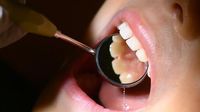Swiss oral health has shown remarkable improvement over the past two decades, with a recent study revealing that more than 70% of the population now considers their teeth and gums to be in "good to very good" condition. This significant finding was released by the Federal Statistical Office (OFS) on April 7, 2025, highlighting a positive trend in dental hygiene among Swiss citizens.
According to the OFS, the percentage of Swiss people who rated their dental health positively has increased since 2005, when these figures were considerably lower. In 2022, 71% of respondents expressed satisfaction with their oral health, showcasing a clear advancement in public perception and care over the years.
However, despite this encouraging statistic, the study also uncovered areas that require further improvement. Alarmingly, 17.7% of Swiss individuals reported brushing their teeth only once a day, a figure that rises to 23.5% among men. In contrast, only 12.1% of women fall into this category. This discrepancy suggests that men may need to pay more attention to their dental hygiene practices.
Moreover, the number of people who clean their teeth less than once a day has seen a slight increase between 2012 and 2022, moving from 1.8% to 2% of the population. This trend is particularly concerning as it indicates a growing number of individuals neglecting their oral health altogether. Among these, 3.2% are men, compared to just 0.8% of women, further emphasizing the need for targeted health campaigns aimed at improving men's dental habits.
Another noteworthy finding is the decline in the percentage of Swiss people who brush their teeth more than twice a day. This figure has dropped by nearly 5 percentage points over the last decade, with only 22.3% of the population maintaining this practice in 2022. On a more positive note, there has been an increase in the number of individuals who brush their teeth twice a day, rising from 53.7% in 2012 to 58% by 2022. This aligns with recommendations from dental specialists and health authorities, who advocate for brushing at least twice daily.
The Federal Office of Public Health (OFSP) strongly recommends that adults adhere to this guideline, emphasizing the importance of maintaining good oral hygiene for overall health. The statistics indicate that while many Swiss individuals are aware of the need for better dental care, there is still a significant proportion that does not follow through with recommended practices.
Interestingly, the study also revealed a gender disparity in satisfaction with dental health. A notable 74% of women expressed satisfaction with the state of their teeth, in contrast to 68% of men. This difference could be attributed to the varying dental care routines and habits observed between genders. The data suggests that women may be more proactive in their oral health management compared to men.
As the OFS continues to monitor oral health trends in Switzerland, it becomes evident that while progress has been made, there remains a crucial need for ongoing education and awareness campaigns. These initiatives could help address the gaps in dental hygiene practices, particularly among men and those who brush infrequently.
In conclusion, the latest findings from the OFS paint a promising picture of Swiss oral health, showcasing improvements in public perception and practices. However, the data also highlights the need for continued efforts to enhance dental hygiene across all demographics, ensuring that every individual understands the importance of maintaining healthy teeth and gums. As the country moves forward, it will be essential to build on these positive trends and address the areas that still require attention.





